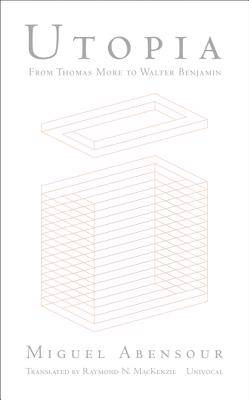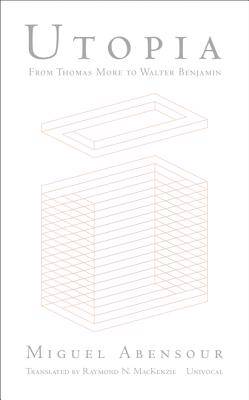
- Afhalen na 1 uur in een winkel met voorraad
- Gratis thuislevering in België vanaf € 30
- Ruim aanbod met 7 miljoen producten
- Afhalen na 1 uur in een winkel met voorraad
- Gratis thuislevering in België vanaf € 30
- Ruim aanbod met 7 miljoen producten
Omschrijving
"Utopia poses a question. Not simply in the sense of a problem to be resolved and at the same time eliminated . . . but in the sense that, within the economy of the human condition, utopia, the aim of social alterity--of all social otherness--is ceaselessly being reborn, coming back to life despite all the blows rained down upon it, as if human resistance had taken up residence within it."
For the French philosopher Miguel Abensour, the fictional genre of utopia has provided thinkers and artists a fertile ground to explore for the past 500 years, both as a way to imagine new emancipatory practices of shared existence and as a tyrannical imposition of power. Here, Abensour's project is to examine the idea of utopia in two different but powerful moments in its trajectory: first, utopia's beginning, when Thomas More sought a path for justice through a world in transformation, and second, when utopia faced its greatest danger, the moment that Walter Benjamin called "catastrophe."
Specificaties
Betrokkenen
- Auteur(s):
- Uitgeverij:
Inhoud
- Aantal bladzijden:
- 114
- Taal:
- Engels
- Reeks:
Eigenschappen
- Productcode (EAN):
- 9781945414008
- Verschijningsdatum:
- 15/01/2017
- Uitvoering:
- Paperback
- Formaat:
- Trade paperback (VS)
- Afmetingen:
- 127 mm x 203 mm
- Gewicht:
- 158 g

Alleen bij Standaard Boekhandel
Beoordelingen
We publiceren alleen reviews die voldoen aan de voorwaarden voor reviews. Bekijk onze voorwaarden voor reviews.











